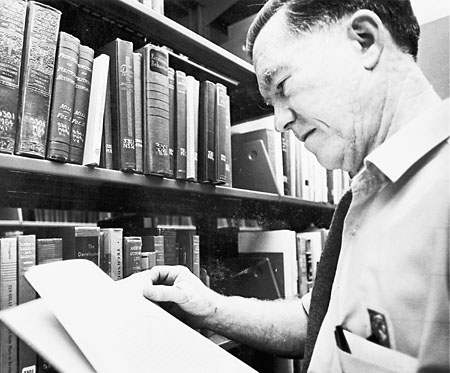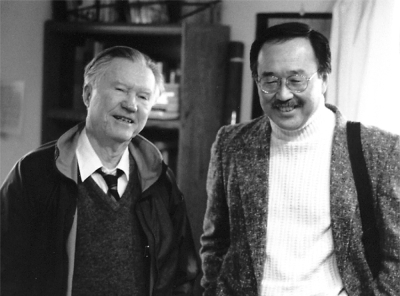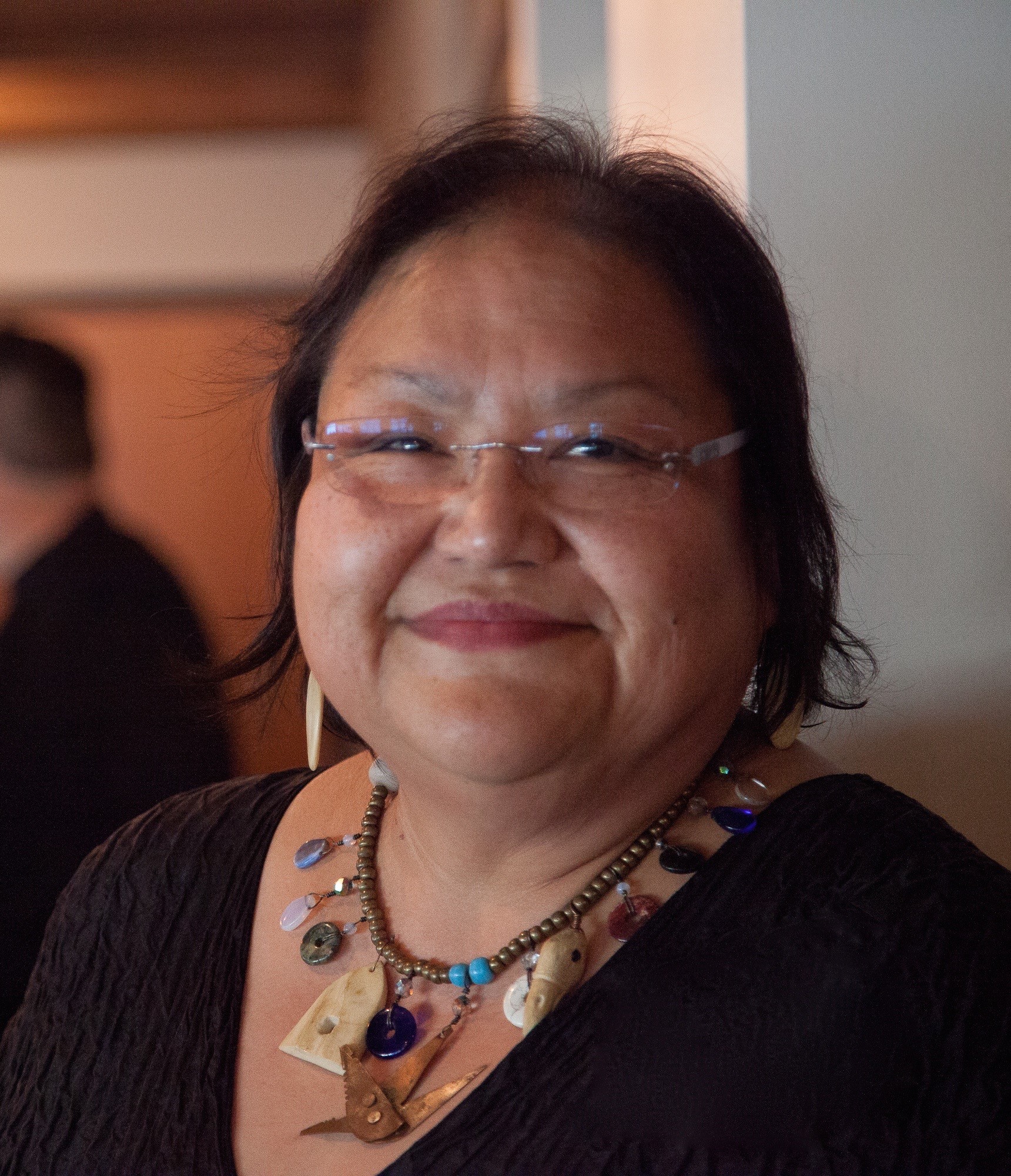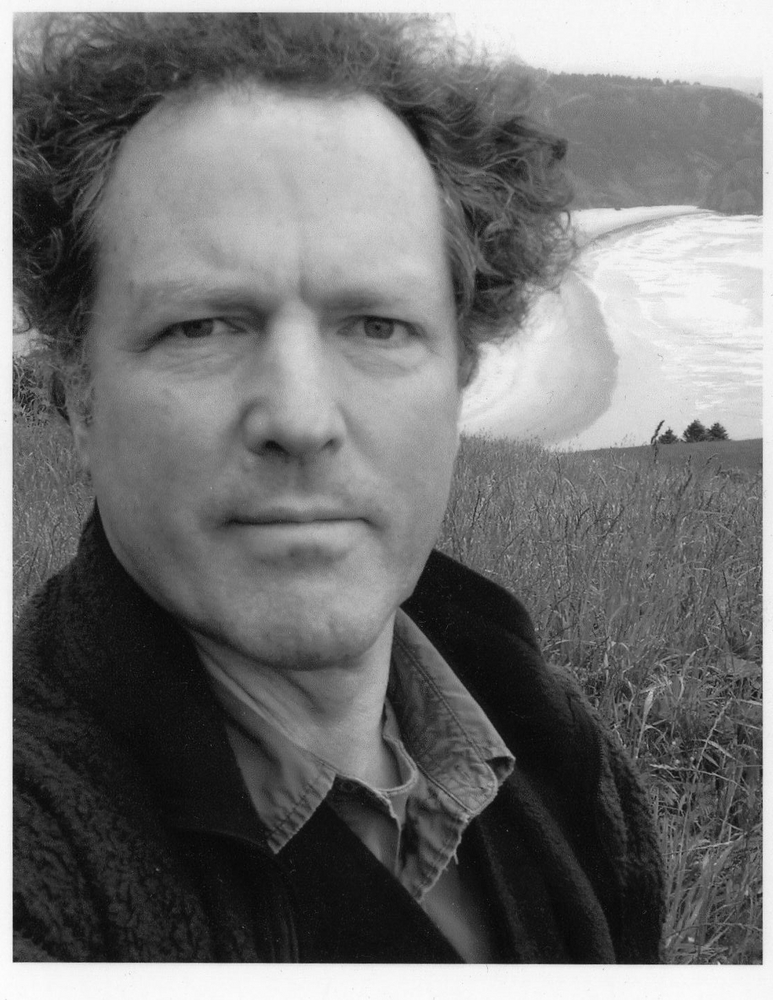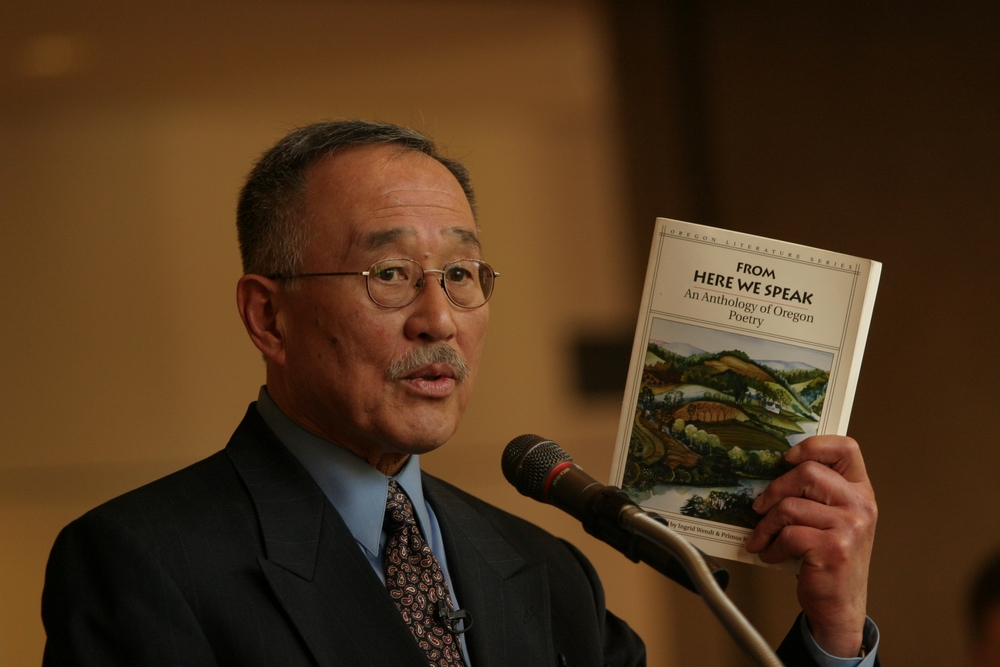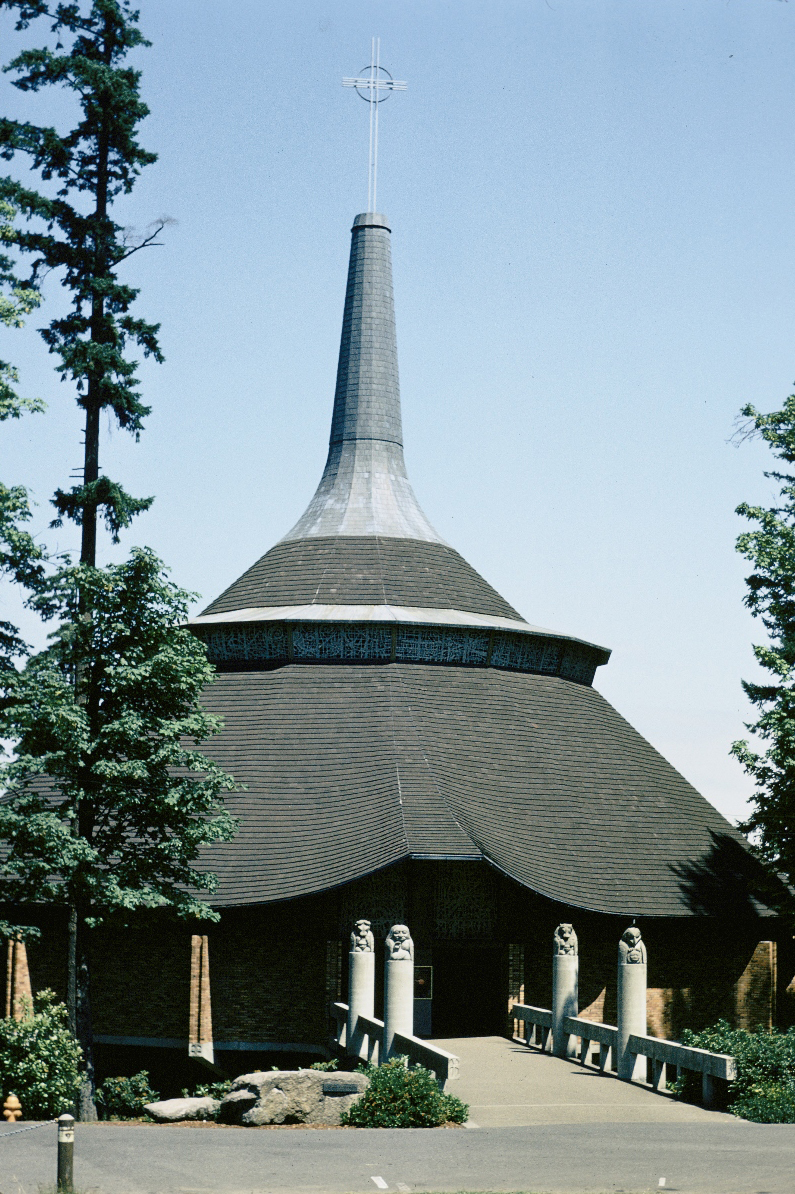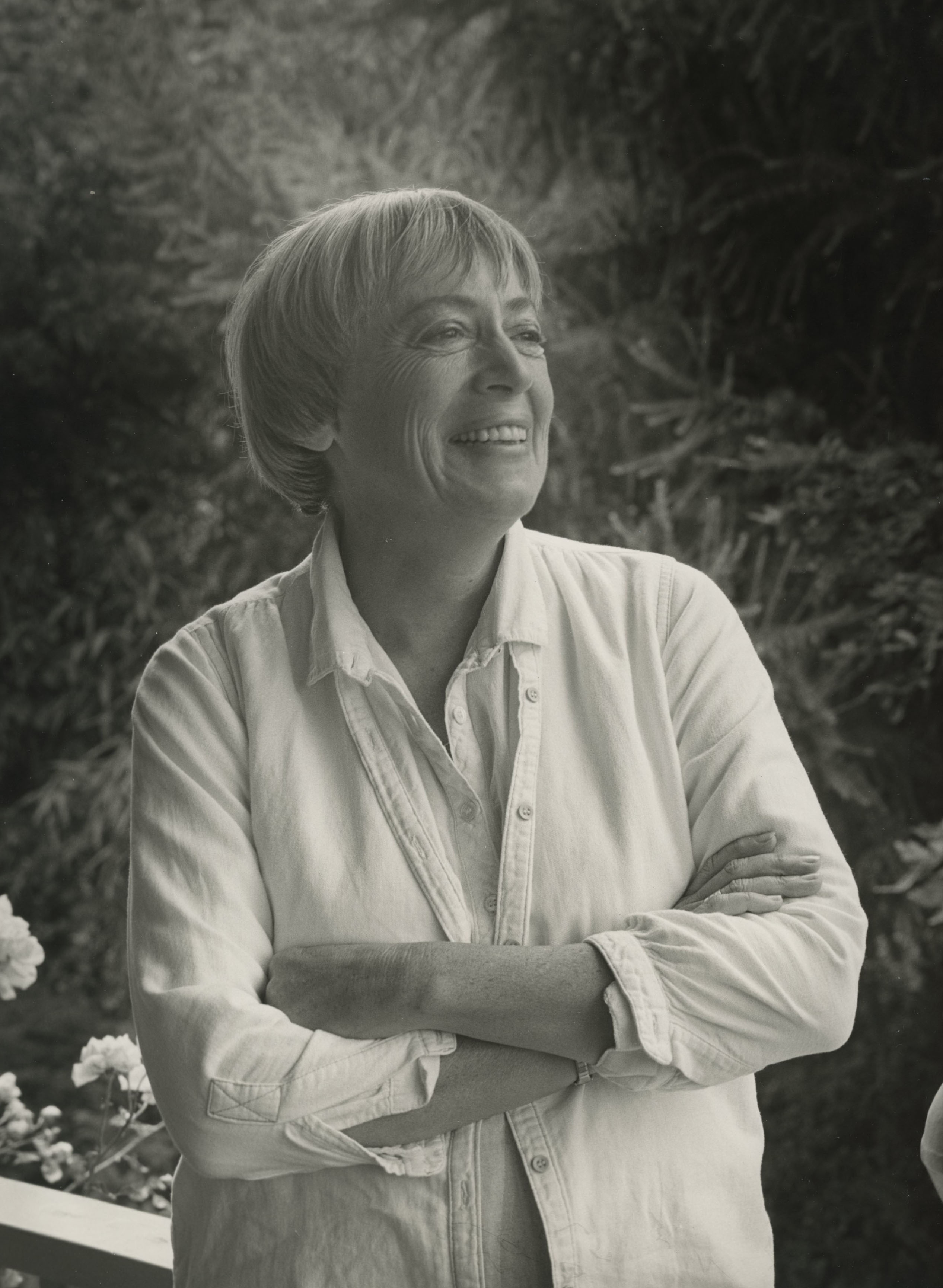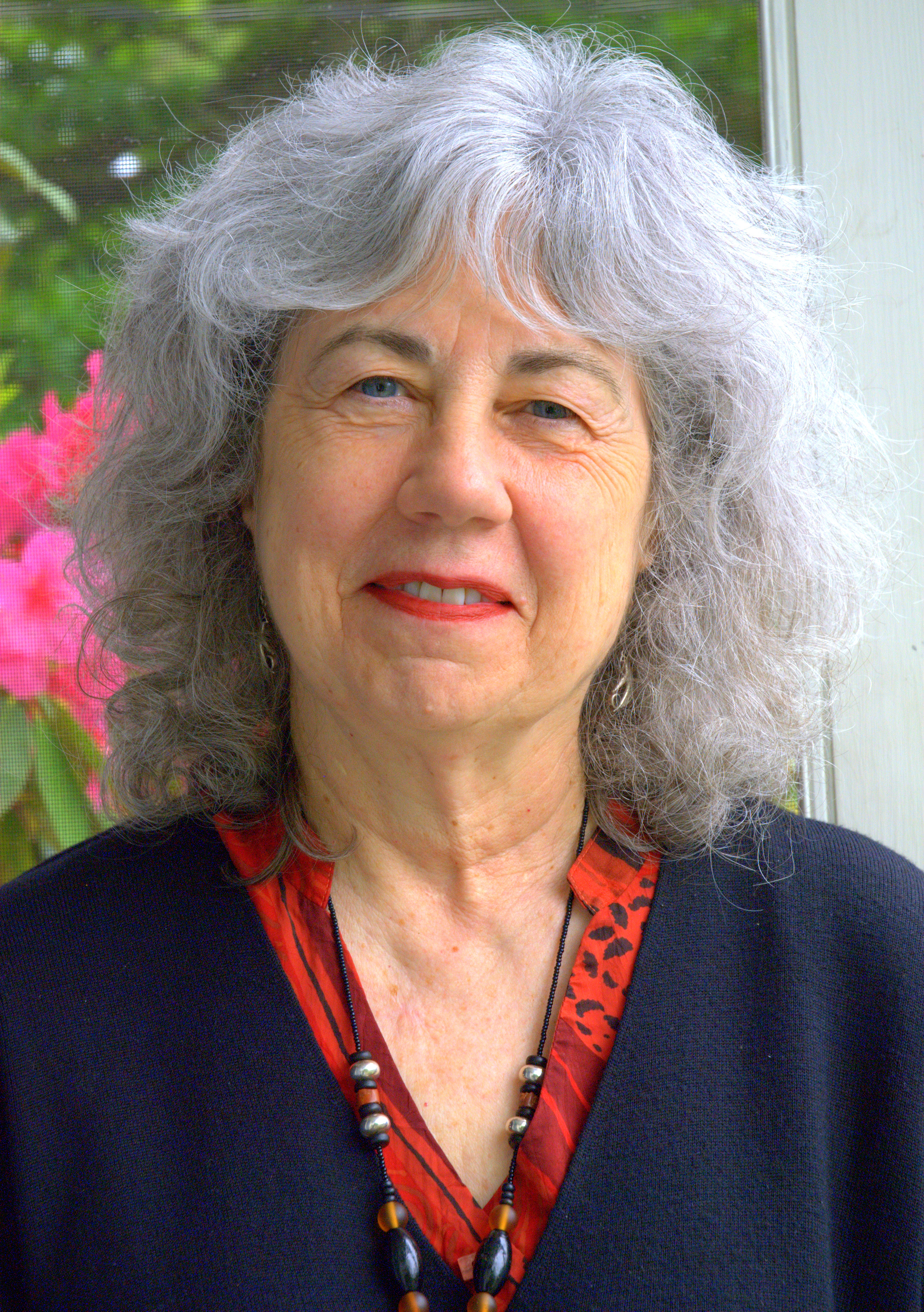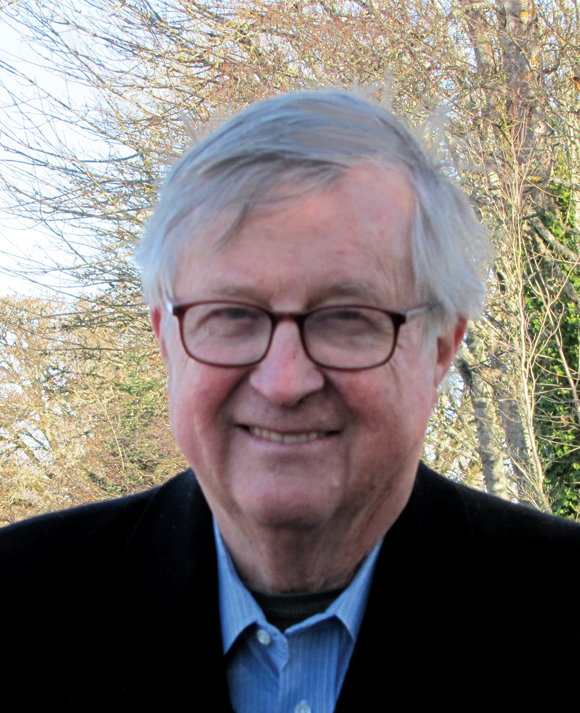William Stafford, one of America’s most widely read poets, was born in Hutchinson, Kansas, in 1914 to Ruby and Earl Ingersoll Stafford, the first of three children. He was followed by brother Bob and sister Peg. He worked (sometimes beside his father) at hardscrabble manual jobs during the Depression, including work in beet fields, at an oil refinery, and most memorably yoked to a plow.
Stafford received his bachelor’s degree in 1937 from the University of Kansas, and he was in the graduate program there when called up for active military service in 1942. He registered with his draft board as a conscientious objector and was interned in Civilian Public Service (CPS) camps in Magnolia, Arkansas, and in the California camps at Los Prietos near Santa Barbara and Belden on the Feather River. He had applied for assignment to a Friends (Quaker) camp, but was placed in camps run by another peace church, the Church of the Brethren. In 1946, he ended his service as secretary to the church in Elgin, Illinois.
Stafford’s career as a poet and educator was shaped by the hard physical labor and the discipline and cooperative ethos of camp life, where he began his lifelong habit of writing each day in the early hours of the morning. His 1946 master's thesis at the University of Kansas, Down in My Heart, is a prose account of his CPS experiences.
After the war, Stafford took a position as a teacher at Chaffey High School in greater Los Angeles. In 1947, he was recruited by Lewis & Clark College president Morgan Odell, himself a conscientious objector in World War I. Stafford remained at the college until his retirement in 1979, with brief absences to teach at San Jose State University, Manchester College (a Brethren college), and the University of Iowa and to make frequent reading and workshop tours. He was in demand for the remainder of his life for poetry readings and writing workshops, activities in which he had been a pioneer.
Stafford's doctoral dissertation, a volume of poems awarded from the University of Iowa’s writing program, formed a basis for his first two collections, West of Your City (1960) and Traveling through the Dark (1962), which won the National Book Award in 1963. In 1964, he was awarded the Poetry Society of America’s prestigious Shelley Memorial Award, and in 1970 he was named to a one-year position as Consultant in Poetry to the Library of Congress, the office later known as poet laureate. Four years later, Governor Tom McCall appointed him Oregon’s fourth poet laureate, a position he held until August 1989.
Stafford’s famously democratic approach to teaching, exemplified in his advice “No praise, no blame,” is on view in his four volumes in the University of Michigan Press Poets on Poetry series—Writing the Australian Crawl, You Must Revise Your Life, Crossing Unmarked Snow, and The Answers Are Inside the Mountains—and in his 1967 report for the National Council of Teachers of English, Friends to This Ground. A later publication for the NCTE was the bestselling collaboration with Stephen Dunning, the writing manual Getting the Knack (1992). He was also an infrequent but felicitous translator of poems from French, Spanish, Bulgarian, and, most notably, the Urdu ghazals of Ghalib. Stafford's poetry has been translated into many languages, including Persian, Polish, Japanese (through his collaborator Yorifumi Yaguchi), and Swedish—in the 2003 book-length selection by Lars Nordström Rapport fran en avlägsen plats (Report from a Far Place).
The poetry of William Stafford is contained in some fifty collections, selected in Stories That Could Be True (1977) and The Way It Is (1998). His poems are accessible, sometimes deceptively so, with a conversational manner that is close to everyday speech. Among predecessors whom he most admired are William Wordsworth, Thomas Hardy, Walt Whitman, and Emily Dickinson.
Stafford wrote an authoritative introduction to a selection of poems by his conscientious objector colleague, Brother Antoninus (William Everson), and exchanged poems with Marvin Bell, which were published in two volumes, Segues (1983) and Annie-Over (1998). Stafford’s association with Bell, his long friendship with poet Robert Bly, and his pacifism are explored in four video documentaries: William Stafford: What the River Says (1989); William Stafford: The Life of the Poem (1992), by Vincent Wixon and Michael Markee; Robert Bly and William Stafford: A Literary Friendship (1994); and Every War Has Two Losers (2009) by Haydn Reiss.
A frequent photographer of his fellow poets, Stafford accumulated 12,000 negatives, which are housed among his papers at Lewis & Clark College. Also in the collection are over forty years of daily drafts and typescripts from the early 1950s to 1993, a voluminous correspondence preserved from 1964, and some 200 recorded readings and interviews.
Stafford's work is celebrated every January in a series of about forty readings organized by Paulann Petersen, Oregon's sixth poet laureate, and the Friends of William Stafford in Oregon. The readings take place in seven states, including Oregon, and in Sweden, Scotland, and Japan, a tribute to his broad appeal. More than a dozen publications have appeared since his death in 1993, most notably The Methow River Poems (1995), Even in Quiet Places (1996), The Way It Is: New and Selected Poems (1998), Kim Stafford’s memoir Early Morning (1998), Crossing Unmarked Snow (1998), The Answers Are Inside the Mountains (2003), Every War Has Two Losers (2003), and Fred Marchant’s selection of early poems Another World Instead (2008).
Stafford was married in 1945 to Dorothy Frantz, daughter of a Brethren minister who brought her on one of his visits to Los Prietos camp. With Dorothy he had four children—Bret, Kim, Kit, and Barbara. He was active both physically and creatively to the last day of his life, on August 28, 1993, when he wrote an elegiac poem containing the line “I’m [still] here writing it down.” Those brackets convey the modest irony that was characteristic of his career.
-
![]()
William Stafford in the library at Lewis & Clark College.
Oreg. Hist. Soc. Res. Library, CN 014269
-
Poet Lawson Inada (r) with William Stafford.
Courtesy www.poetryvideos.com
Related Entries
-
![Elizabeth Woody (1959-)]()
Elizabeth Woody (1959-)
Poet and artist Elizabeth Woody was named Oregon Poet Laureate in 2016,…
-
Kim Stafford (1949 - )
Kim Stafford, Oregon’s ninth Poet Laureate, is a poet, essayist, memoir…
-
Lawson Fusao Inada (1938-)
Poet, writer, and educator, Lawson Fusao Inada is an emeritus professor…
-
![Lewis & Clark College]()
Lewis & Clark College
Lewis & Clark College, a private and academically selective liberal art…
-
![Oregon Literature (1920-2010)]()
Oregon Literature (1920-2010)
The joint appearance in 1927 of the controversial pamphlet Status Rerum…
-
![Paulann Petersen (1942-)]()
Paulann Petersen (1942-)
Paulann Petersen, Oregon’s sixth Poet Laureate, is an award-winning poe…
-
![Peter H. Sears (1937–2017)]()
Peter H. Sears (1937–2017)
Peter H. Sears, a poet and educator, served as Oregon Poet Laureate fro…
Map This on the Oregon History WayFinder
The Oregon History Wayfinder is an interactive map that identifies significant places, people, and events in Oregon history.
Further Reading
Andrews, Tom. On William Stafford: The Worth of Local Things. Ann Arbor: University of Michigan Press, 1993.
Kitchen, Judith. Writing the World: Understanding William Stafford. Corvallis: Oregon State University Press, 1999.
Stafford, Kim. Early Morning: Remembering My Father, William Stafford. St. Paul, Minn.: Graywolf Press, 2002.

